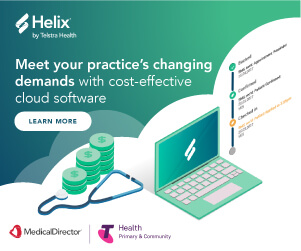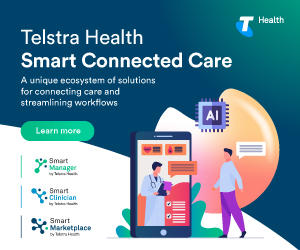Report reveals AI is critical to transforming healthcare
Artificial intelligence (AI) is gaining significant momentum in healthcare and is forecast to have the potential to significantly alter the industry, a new global study found.
Released by PWC, the report, Top health industry issues of 2018: a year of resilience amid uncertainty revealed AI is already gaining traction in healthcare’s back offices and supply chains, generating quiet efficiencies that perhaps aren’t garnering the same glamorous headlines as robotics and genomics.
Leveraging AI to streamline mundane tasks
According to the report, more health businesses around the world are now leveraging the power of AI to automate decision-making, create financial and administrative efficiencies, automate parts of their supply chains, or streamline regulatory compliance functions.
Repetitive tasks in particular may benefit from the introduction of AI and machine learning to replace or supplement human interaction, the report found. AI doesn’t forget, tire, get bored with tasks or develop carpal tunnel syndrome.
Freeing up healthcare providers’ time to focus on patient care
But this doesn’t make humans redundant, in fact, it frees up healthcare professionals’ time to do less mundane tasks and focus on more personalised patient care. According to the report, healthcare providers can leverage AI tools to help their staff analyse routine pathology or radiology results more quickly and accurately, allowing them to see more patients and realize greater revenues.
Implications for pharmacy, research and innovation
The report also stressed that the implications of AI also extends to the pharmaceutical, drug and medical R&D sectors. For instance in the pharmaceutical industry, a company could use AI to automate the intake, analysis, follow-up and reporting of adverse event reports associated with their drugs.
And while the R&D process for new drugs can be slow and expensive, AI tools can help better identify which compounds are likely to succeed based on early-stage clinical data.
Time to get serious about data
In order to best adopt AI as a true enabler in healthcare, the report stressed the tool is only as good as the data it uses for decision-making.
This is why the industry should start getting serious about investing in finding, acquiring and creating good data, standardising it and checking it for errors, the report said.
At the same time, healthcare providers should consider how their systems capture, collect, clean, integrate, enrich, store and analyse data. They should collect data in a way that allows it to be integrated with other relevant systems and in a way that can ultimately enable better healthcare now and in the future.









